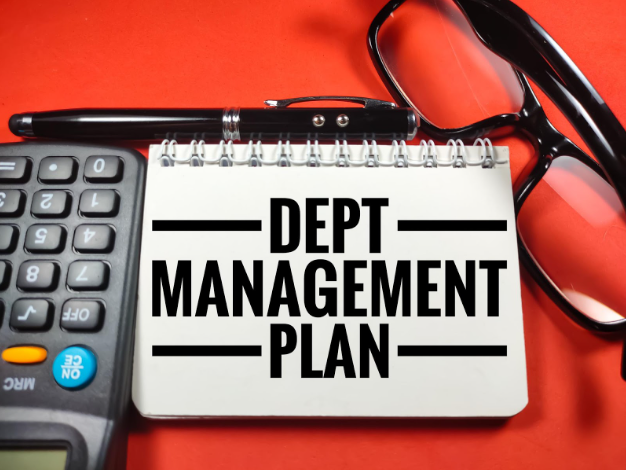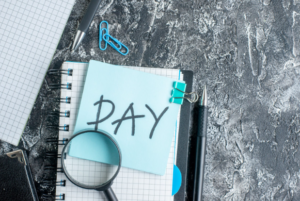
Debt Management Questions and Answers
What is debt management?
Debt management happens when you seek help to manage your debt better by consulting a counseling agency. This approach helps you tackle your debt as you can get your creditors to lower or remove interest rates and create a payment schedule that’s more manageable for your budget. It’s not an instant fix, but more of a steady path toward being debt-free, making your financial journey a bit less overwhelming.
What are the benefits of enrolling in a debt management plan?
Jumping into a debt management plan can help you when you’re drowning in debt. You may be able to stop interest from accumulating. Also, instead of juggling multiple payments that never seem to end, you get one consolidated payment. It’s like cleaning up a cluttered room and finding your floor again. This plan can also stop those never-ending calls from creditors, giving you a little peace of mind and space to focus on your life.
How do debt management plans affect your credit score?
At first, your score might take a small dip when your accounts are closed. But, as you stick to the plan and make regular payments, over time, this consistent effort can actually help your score climb back up. Think of it as a temporary step back for a bigger leap forward, showing future lenders you’ve got your act together when it comes to managing your debts.
What types of debt can be included in a debt management plan?
Debt management plan is great for unsecured debts, like credit card bills, payday loans, or medical expenses, where there’s no collateral at risk. Secured debts, like your home mortgage or car loan can’t be consolidated under a debt management plan. So, while a debt management plan is not a one-size-fits-all, it can definitely help you get a hold of your finances.
How long does a typical debt management plan last?
Typically, you’re looking at around 3 to 5 years to cross that line. For example, a consumer proposal can last up to 5 years. It might sound like a lot of time, but it’s actually a structured journey designed to be manageable without pushing you to the wall. It’s at your own pace, you’re making consistent payments, and watching the debt mountain become a molehill. This timeframe gives you enough space to manage your budget and not feel overwhelmed.
What is the difference between debt management and debt settlement?
In debt management, you’re working on paying back what you owe, just with better terms like lower interest rates and a consolidated payment. In a consumer proposal, you can get your debt reduced by up to 80%. But in a debt settlement program, you pay your debt once while it is reduced.
What happens if you miss a payment on a debt management plan?

If you miss a payment in a debt management plan, your creditors might lose some of the concessions they agreed to, like lower interest rates or you will be liable to pay everything you owe. But don’t panic. If you sense that you may miss a payment, reach out to the debt expert managing the program. They are your ally in your journey. Their approach might involve adjusting your payment schedule or finding a way to keep the situation in control.
How does debt management affect your ability to borrow in the future?
While debt management is focused on clearing your current debts, it can affect your ability to borrow temporarily. This is not actually strange because if we look at it logically, why should a creditor lend you money when you’re already undergoing a program to pay your current debt? It already means you can’t manage your debt yourself, and adding more to it doesn’t entirely make sense. So you will need to budget well so you don’t have to depend on credit because they won’t even lend you, or they will give you the one with very high interest, which could affect your finances further.
What are the potential drawbacks of entering into a debt management plan?
There are a few things to watch out for. First off, you may not be able to access credit. Then, there’s the reality check that not all creditors will oblige to lower your interest rates or stop interest from accumulating, which can be a bit disheartening. However, you can speak with one of our debt experts at EmpireOne Credit, your debt can be reduced by up to 80%, and interest will stop immediately.
Another drawback is, your credit score might drop. But you can still build it back at the end of your payments.
Can a debt management plan help with secured debts, such as a mortgage or car loan?
Secured debts, like your mortgage or car loan, are anchored down by the home or vehicle they’re tied to, and they don’t get included into this plan. These types of debts have their own management plans, like refinancing or loan modification programs, tailored to their specific nature. So while a debt management plan can’t directly include your secured debts, reducing your unsecured debt load can give you more breathing room in your budget to tackle other debts easily.
Conclusion

A consumer proposal is a fantastic and legal debt management plan that can help you manage your debt with ease. You won’t lose your assets like you would in bankruptcy. All those disturbing calls from your creditors will stop and you can get your debt reduced by up to 80%, while interest will stop immediately. You can speak with one of our debt experts at (416) 900-2324 to schedule a free consultation with us. Being debt-free feels good!





